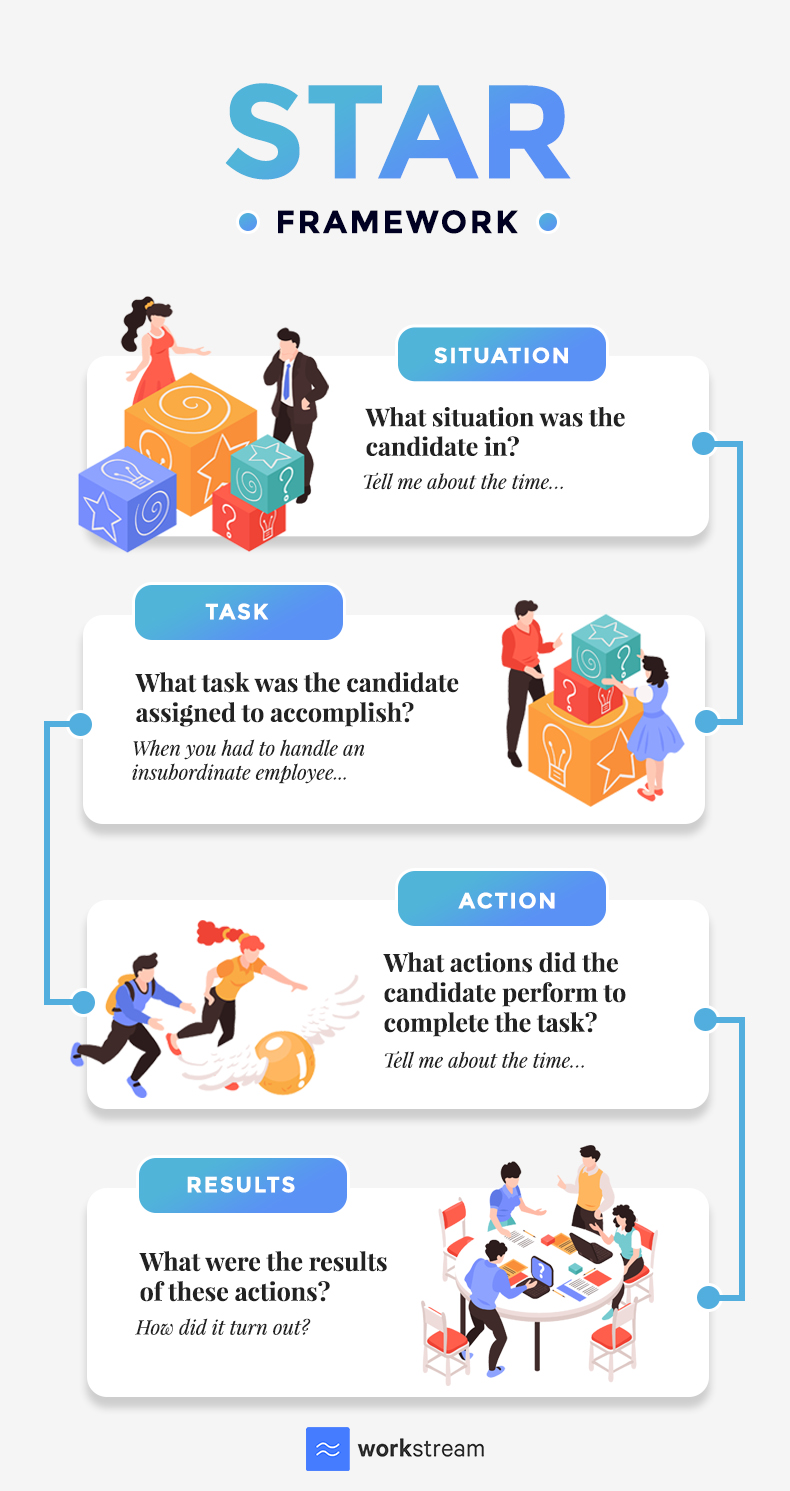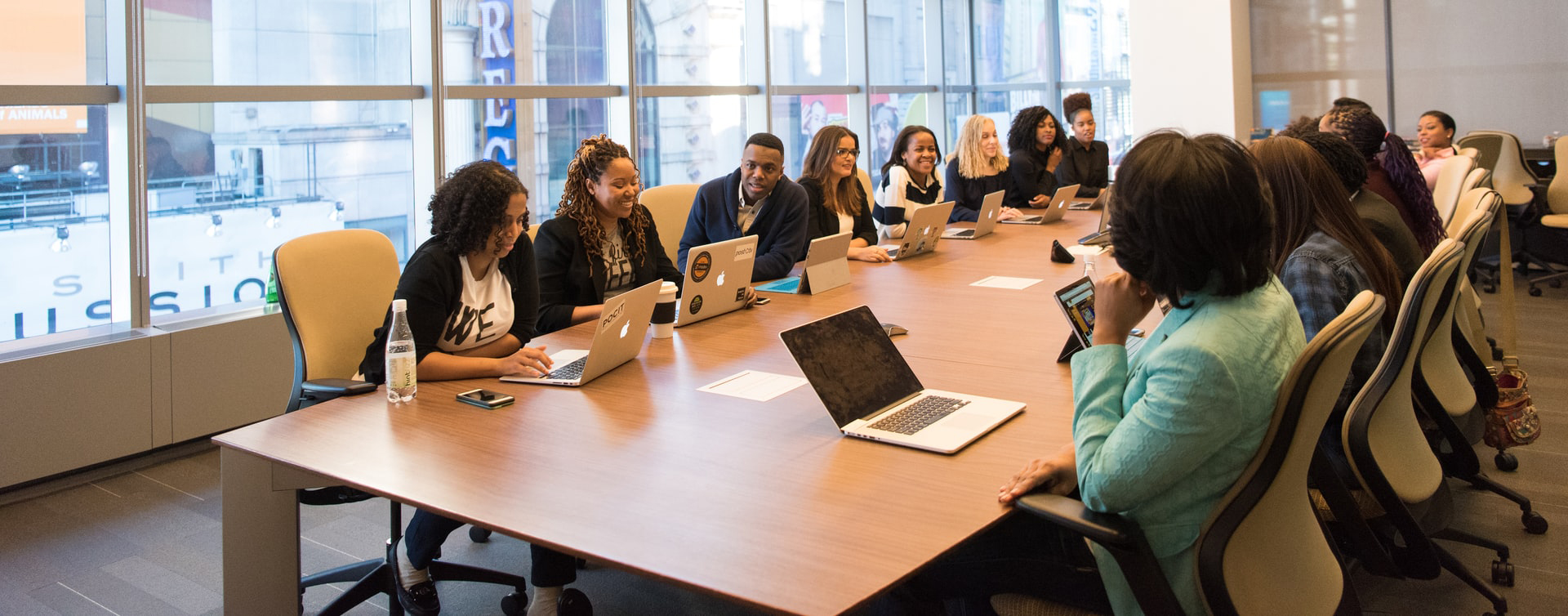
The concept behind behavioral interview questions is that prior actions are the best predictor of future behavior. The employer can determine how you would behave in comparable conditions in the position you are applying for by asking thorough questions about particular tasks you completed or experiences you had in a real-life context in previous roles.
Considering the time after the pandemic, employers and employees have been presented with new obstacles to the industry, particularly the career planning and recruiting procedures. Prospective employers face the additional challenge of ensuring that a job prospect is a suitable match for a position, especially considering the remote job interviews. And in regards to that, they are employing behavioral and contextual interview questions to assist them in overcoming these challenges.
What is the definition of a behavioral interview question?
Behavioral interview questions center on prior employment experiences and events. Rather than hypothetical instances, you must offer specific examples of prior problems that you have responded to these questions.
Your responses to behavioral interview questions reveal your talents, soft skills, personality, and degree of experience to a hiring manager. Whenever a hiring manager understands how you handled a scenario in the past, they can better predict how you will handle future workplace circumstances and if your responses to the contextual interview questions are real.
What Are the Benefits of Behavioral Interviewing?
Employers can choose from a range of interviewing strategies when implementing accurate and fair selection processes that incorporate interviewing. It is critical to select an interviewing approach that is appropriate for the organization’s performance and retention requirements, as well as the culture of the organization/team. This tutorial focuses on behavioral interviewing, which is often regarded as the most successful interviewing approach in almost any setting.
Behavioral interviewing is a type of interview that focuses on a candidate’s prior experiences by encouraging them to offer concrete instances of how they have displayed various behaviors, expertise, abilities, and talents. Behavioral interview answers should give verifiable, tangible proof of how an applicant has dealt with problems in the past. This information typically exposes a candidate’s genuine degree of expertise as well as his or her ability to deal with comparable problems in your company. The questions in behavioral interviews are usually direct, penetrating, and precise.
Why should you practice behavioral interview questions?
Preparing for a behavioral interview has advantages that extend beyond the interview itself. Behavioral-based interviews are used by the world’s best corporations, and these are the organizations you might want to work for. Further, you may use the examples and tales you keep coming up with for these sorts of interviews to assist you to connect and network at industry events. When you practice and prepare for a behavioral-based interview, you’ll be more prepared for any sort of interview. As a consequence of your research, you’ll have an excellent record of your professional successes and circumstances to use for biographies, resumes, websites, and cover letters. Ultimately, coming up with instances of behavioral-based interviews may be a confidence booster when we recognize our skills and successes on paper because many of us don’t give credit where credit is due.
Useful Hacks To Tackle Behavioral Interview Questions
1. Examine previous performance papers and evaluations.
Look back at previous performance reviews and notes to discover successes and events that can help you come up with examples for a behavioral interview to help you prepare for future job interviews.
2. Make time to complete your responsibilities.
To prepare for a behavioral-based interview, research the job description and the organization you’ll be interviewing with. Find out as much as you can about the previous or current occupant of the job, as well as the sorts of people hired by the company. This will aid in the development of a list of competencies, qualities, and talents
3. Stand out by being confident
Last but not least, have faith. In an interview, you have the opportunity to shine and differentiate yourself from the throng. Tell your behavior narrative with zeal, and don’t be afraid to respond. An employer will imagine you conversing with your team or presenting something to a customer, and will want to see that you can be confident in your answers.
4. A Positive Response Will Work Better
Instead of negative instances of behavior, try to think about good ones when preparing your replies. A positive understanding of your approach toward difficult events will be sought by an interviewer. It will not reflect well on you if you provide a negative response.
An interviewer may, however, ask you to elaborate on a period when you failed or had a bad result. In this circumstance, concentrate on what you learned from the Unfavorable experience and how you would handle a similar situation in the future.
5. Focus On Providing Role Specific Information
The purpose of behavioral interviewing is to see if you’re a good fit for the position you’ve applied for. The sorts of responses that the interviewer is searching for will be directly tied to the job.
Make sure you go through the job criteria thoroughly before the interview and make a list of the most important skills you’ll need. Consider one or two anecdotes that illustrate your competence in that area for each one. When it comes to the interview, you’ll already have some prepared responses, including instances of talents that closely fit the requirements.
6. Use STAR Model
The STAR (Situation, Task, Action, Results) paradigm is a very helpful and popular technique for designing behavioral interview questions. By asking candidates to tell the story of past behavior, the STAR technique supports them in structuring their responses to behavioral questions.

Examples Of Behavioral Interview Questions
What was your worst failure, and what did you discover as a byproduct of it?
The interviewer is attempting to determine whether you can acknowledge mistakes and learn from them by asking this question. He also wants to know if you are modest enough to accept mistakes or if you like to blame others for them. You might tell the interviewer what you learned from prior blunders in your previous employment. Examples include when you disagreed with your boss and went to a higher authority, which agreed with you but harmed your relationship with your immediate supervisor.
What if you find out at the last minute that a report you wrote for your employer is subpar?
If you notice that a report you completed for a supervisor was not up to par by the deadline, your first reaction should be to contact the supervisor or employer. You should also see if there is a way to fix the problem, and if not, you should look into the cause of the error.
Explain how you can deliver a difficult task or project in a simplified manner?
- Follow the steps below to convey a difficult work or project in a simpler manner.
- Make a list of the tasks and split them down.
- Convert a large project or task into a series of microtasks.
- Divide your time and take advantage of time management tools.
- You should multitask whenever possible.
- Maintain Your Organization
- Work intelligently rather than harder.
What exactly is empathy in terms of EQ?
Empathy is defined as the capacity to comprehend how others view things. It involves understanding how others feel about a specific set of circumstances or occurrences.
What are some ideas for improving nonverbal communication?
- The following suggestions might help you enhance your nonverbal communication.
- Concentrate on the other person.
- Make direct eye contact.
- Take note of nonverbal clues.
And some more questions to consider are –
- Have you ever dealt with an upset client or stakeholder?
- Can you think of a time when you were in a high-pressure employment situation?
- Do you want to enhance any of your work habits?
- Consider a period when you weren’t sure how to address a problem. Please explain how you resolved it.
- Have you ever gotten excessive praise or criticism for the success or failure of a project?
How did you deal with it? - Describe a case in which individuals on your project disagreed with your suggestions. What exactly did you do?
- Tell me about a moment when you worked with a coworker who didn’t do their fair part of the job. How did you deal with it?
- Describe a circumstance in which you had to reach a compromise or assist others in reaching a compromise.
What did you do? What measures did you take? What was the outcome? - Tell me about a moment when you had to work on a team with a squabbling group of people.
What transpired? What part did you play? What was the outcome? - What was your biggest mistake while allocating tasks as part of a collaborative project?
- Tell me about a time when you were in charge of a project.
- What are your strong points and weak points?
- Please tell me about a moment when you had to balance conflicting priorities.
- Tell me about a situation when you had no choice but to adjust to changes over which you had no control. How did you handle it?
- Tell me about a time when you needed to adapt to a colleague’s working style in order to complete a project or make a deadline.
- How did you transfer from high school to university? Did you encounter any unusual problems? How did you handle them?
How To Research a Company Before a Job Interview.
For more Updates
Website – www.shrofile.com
Facebook page – https://www.facebook.com/shrofile/
Twitter page – https://twitter.com/shrofile
Linkedin Page – https://www.linkedin.com/company/shrofile/
YouTube Page – https://www.youtube.com/channel/UChVfJqpTjx1dHJ2xq_dMtAw
Instagram Page – https://www.instagram.com/Shrofile/




